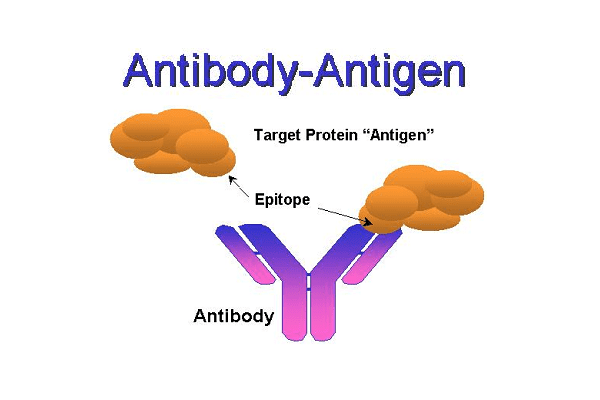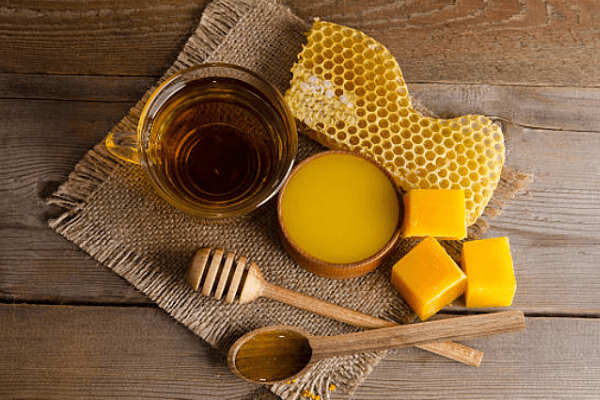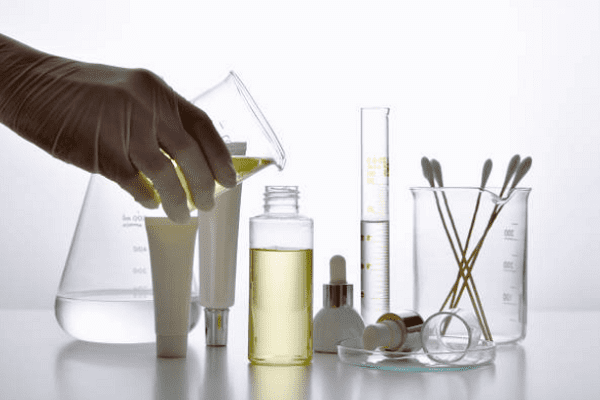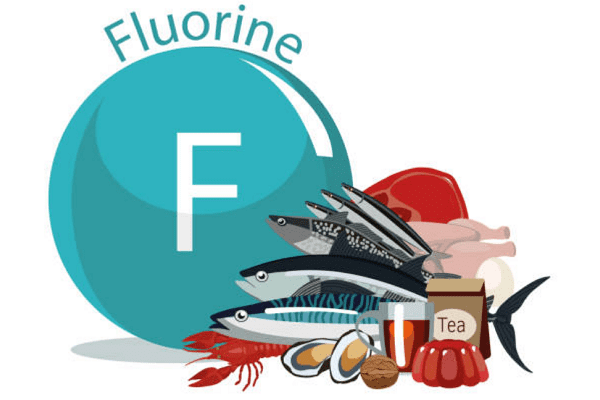Immunology and Allergology >>>> Antigen and Antibody - how immunity works
Antigen and Antibody - how immunity works.

An antigen is a substance or forms of a substance that, when ingested, can cause (induce) an immune response. Such substances are often called immunogens in the medical literature. The procedure for introducing antigen into the body is called immunization .
Antigens (immunogens) are large molecules with a large molecular weight. But there are exceptions when the immune system responds to not too large molecules. An antigen can be produced when small molecules (for example, a molecule of aromatic substances) bind to a large molecule (macromolecule) that will be a carrier, and a small molecule in this case is called a hapten. Cases of immediate or delayed allergic reactions are often associated with haptens.
A variety of objects containing the corresponding substances can act as an antigen. These can be food, pollen, insecticidal, household objects, latex, dyes, xenobiotics, various types of implants, tumor cells, and many other objects. By their chemical nature, antigens are proteins, polysaccharides, phospholipids, and their combinations.

Antigens carry signs of foreign information. But what exactly and how does the body's immune system recognize? The immune system has a diverse arsenal of cellular structures for the recognition and destabilization of antigens. T- and B-lymphocytes play an important role in antigen identification; they are endowed with special receptors (analyzers) for antigen recognition. And with the help of these receptors, lymphocytes analyze the molecules of the outer membranes of cells and intercellular tissues of a foreign object. Originating in the organs of the immune system, lymphocytes are endowed with receptors that are initially “sharpened” to detect any type of antigen entering the body, even potentially unknown to the immune system.
The B-lymphocyte finds the antigen, absorbs and begins the process of cleavage of the antigen, turning it into an antigen-presenting complex (a set of substances "digestible" for the T-lymphocyte), preparing it for presentation to the T-lymphocyte (without such preparatory work, the T-lymphocyte is unable to recognize antigen). The T-lymphocyte recognizes a prepared antigen suitable for it and begins to divide, that is, to form a clone of its own similar T-lymphocyte. The number of such clones can reach several million, and each has specific receptors for the same antigen. Clones are necessary so that there are enough T-lymphocyte cells for all antigen molecules. Eliminating antigen molecules, T-lymphocytes attract other phagocytes to work in order to remove antigens from the body with their help. The whole process is called the humoral immune response.
There is an interesting feature of the immune system to build an immune response to antigens with the help of T-lymphocytes and B-lymphocytes or with the help of only B-lymphocytes. In this sense, all antigens are subdivided into thymus-dependent, when T- and B-lymphocytes are involved, and thymus-independent, when only B-lymphocytes are involved. Thymus-independent antigens are referred to as TH antigens.
Antibodies are the immune system's response to the presence of an antigen in the body. Antibodies are molecules of immunoglobulins, special soluble proteins. B-lymphocytes are responsible for the production of antibodies. Immunoglobulins bind antigen molecules, neutralizing them. Then, by phagocytosis, the molecules are eliminated (removed) from the body. Antibodies, that is, immunoglobulins, have a unique ability to bind antigen molecules in the form in which these molecules enter the body (without pretreating the molecule, as in the case of T-lymphocytes), therefore immunoglobulins are called antigen-recognizing and antigen binding molecules. In such cases, less time is spent on the body's immune response. Such immunoglobulins (antibodies) are involved in the immune response when it comes to the presence of thymus-independent antigens (TH antigens) in the body.
Such a rather intricate scheme of the immune system when an antigen enters the body allows a person to fight against harmful microorganisms and substances, ensuring his future life.

Read

Read


























